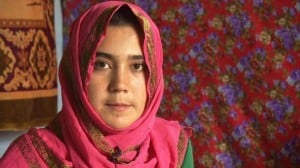On July 11, World Population Day, an international conference on Family Planning was held in London, which has resulted in a relatively large number of related articles in the news. Quite some articles covered the north-south divide in maternal health in Nigeria. The predominantly Muslim north is poorer and the topic of contraception is still very sensitive there; in the northern state of Jigawa only 1% of the families uses contraception, and many mothers still die due to child birth related complications. Usually family planning is considered a woman’s “problem”, but by providing vasectomy for free in Pakistan, there is hope to more men will step up to the plate and take their responsibility. In Indonesia, there is a large concern about the high number of pre-term births, which is often directly related to the low economic status of the mother. The infant mortality rate in Kosovo is the highest in Europe, and even though the number is declining, a lot of measures have to be taken in order to further lower this rate. To control the birth rate, an Iraqi group has called for a ban on marriage before the age of 25.
Last week were the Libyan elections and the politicians went to great lengths to secure the vote of the female electorate. The new women politicians, on the other hand, are battling social and religious conservatism.
A post on the Facebook page of an Australian mosque, where a committee member instructed women that polygyny was a better alternative to divorce, has caused outraged among Muslims in Australia, and around the world.
The public execution of a 22-year-old Afghan woman accused of adultery has caused outrage both in Afghanistan and internationally, and Afghan autorities have launched an investigation to find those responsible. Dozens of Afghan women, and some men, have gone to the streets in Kabul to condemn the violence against women. Even the Taliban has said that this execution is deemed un-Islamic. May Allah grant her peace, and bring justice.
As part of an initiative to make young people part of the decision making process, Bashaer Othman, a 15 year old Palestinian girl, will be the official mayor of a Palestinian town in the West Bank for two months.
Author and United Nations consultant Elora Halim Chowdhury has written a book on (acid) violence against women in Bangladesh, and the lack of resources to support the victims and bring the perpetrators to justice.
Last week a young women’s activist in Pakistan has been killed in a targeted attack. Farida Afridi was a tribal woman and executive director of a NGO working to improve the status of women in the Federally Administered Tribal Areas (FATA) in Pakistan. May Allah grant her eternal peace, she will be missed.
Human rights NGO Women Under Siege reports that government forces in Syria are targeting women for rape and assault, as the conflict continues to escalate.
British convert Samantha Lewthwaite, also known as the White Widow, is said to be recruiting all female terror squads in East Africa.
Results from a UK anti-Muslim violence helpline show that many Muslims in the UK face attacks, harassment and intimidation because of their faith. Around 75% of the victims are Muslim women.
Al Jazeera features a documentary in their website on four female survivors of the 1995 Srebrenica massacre in Bosnia, which killed approx. 8,000 Muslim men and boys from the town of Srebrenica. The documentary is titled: “Women Who Refuse to Die“.
Libyan Mariam Abdelaziz al-Rajbani shares her story of what happened while she was detained and tortured during the revolution.
The Toronto Star features an article on Fadumo Jama, or Mama Shabab, a Canadian citizen of Somali origin, who is allegedly running a safe house for Western recruits of Al-Shabab in Somalia. The article claims that there is a trend now to be seen for Canadian Muslim women, who radicalize and actively support the jihad movement in the field.
Despite tougher laws that make the practice a crime, swara, or the giving away of a girl to another family in exchange for peace, is a continuing tradition in Pakistan and most common in the Khyber Pakhtoonkhwa Province (KP) and the southern Punjab. “Swara brides” are often very young and are usually treated like slaves by their in-laws.
The month of June saw an alarming increase in cases of sexual violence against women by gangs on Tahrir square in Cairo, Egypt.
The BBC profiles Tajik female boxer Mavzuna Chorieva, a medal hopeful and one of three female athletes to represent Tajikistan during the upcoming Olympics.
Virginity is still a very sensitive issue in many societies, and there is a perceived fear that girls and young women might “lose their virginity” while being active participants in modern day society. Folk culture in the Maghreb countries has come up with a solution: a tradition called tasfih, which supposedly keeps the hymen intact of girls before marriage, even if she has been raped or when she has got pregnant.
In 2008-2009 5 percent of the firms in the Palestinian West Bank were headed by women, but the last years have seen a remarkable growth in female-owned businesses, despite the bureaucratic restraints and the male-dominated society.
An article published by the Common Ground News Service addresses the role women play in changing the face of mosques in North America.
Al Arabiya questions whether the fear of the legalization of Female Genital Mutilation in Egypt is real.
Saudi Arabia is sending not only one, but two female athletes to the Olympic Games. Judoka Wodjan Ali Seraj Abdulrahim Shahrkhani and runner Sarah Attar will be representing the country.











